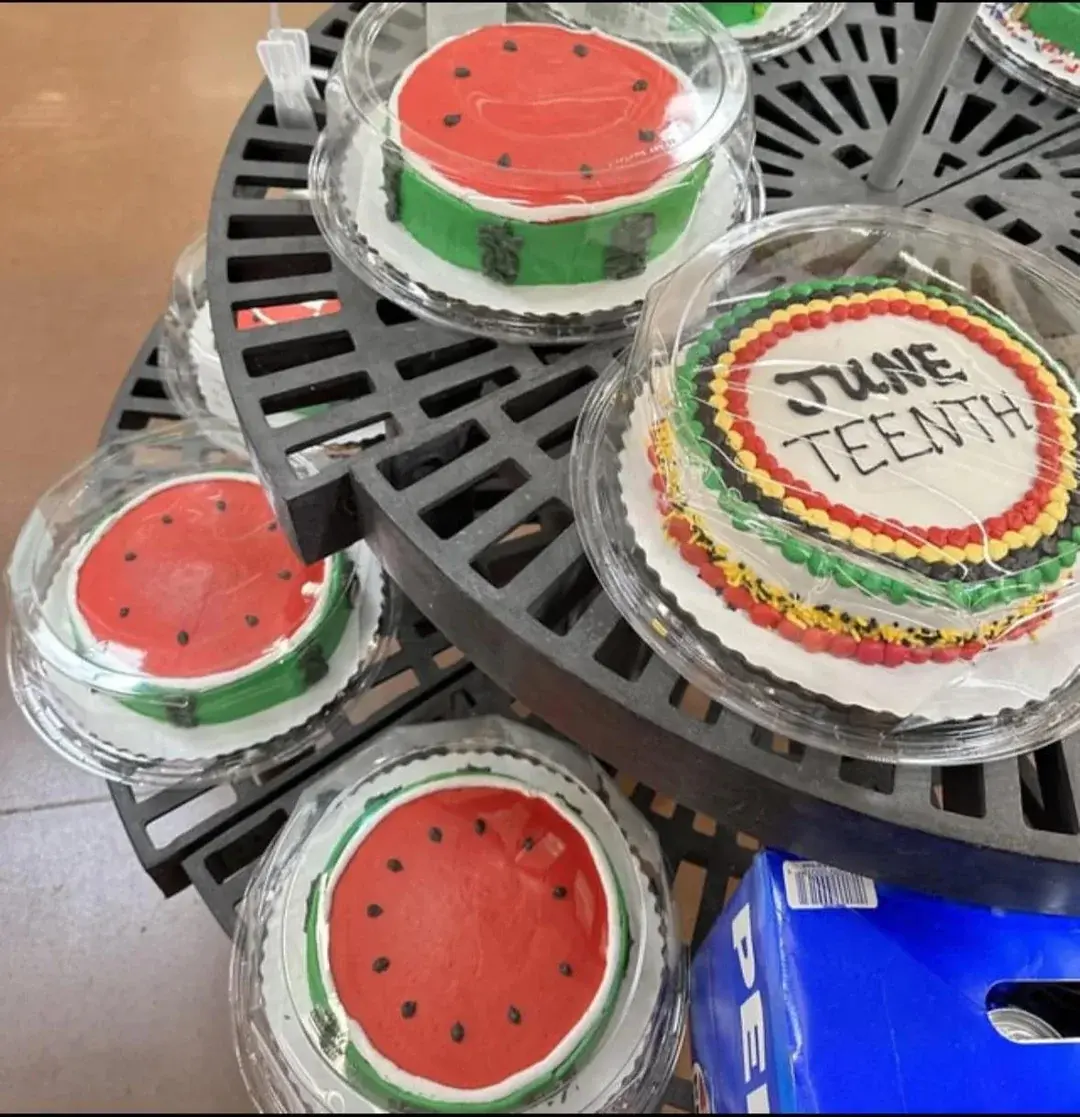What Is Juneteenth?
Juneteenth, celebrated every June 19 in the United States, marks the day in 1865 when the last enslaved people in Texas were informed of their freedom—two and a half years after the Emancipation Proclamation. Federalized in 2021, it stands as a powerful symbol of African American resilience and liberation—a holiday deserving thoughtful recognition and representation.
Controversy Over Kroger Juneteenth Cakes
A TikTok video posted by @blaq.monalisa on June 17 from a Kroger location in Atlanta quickly went viral, capturing poorly crafted “Juneteenth cookie cakes” with messy, off‑center icing reading slogans like “FREE,” “June 19 Free,” and “Free @ Last.” The footage sparked uproar on social media, with many calling the designs a “mockery” of the holiday and demanding accountability.
@blaq.monalisa Kroger count your days. Why even bother if you’re going to lack creativity. This is Kroger on Howell mill rd, Atlanta Ga. This is a mockery! Am I tripping, someone let me know!
One shopper remarked, “Who the hell made this ugly‑ass stuff?” while comparing it to the care taken with other cake themes in the bakery section. In a follow‑up video, she confirmed that after her criticism, all Juneteenth‑themed desserts—including Kroger watermelon cakes—were removed from the shelves.
@blaq.monalisa Went back to Kroger, Howell mill rd, Atlanta Ga. They removed the cookie cakes, or I guess someone purchased them!
A Mockery or Honest Mistake?
Critics argued the effort showed a lack of respect. The phrase “Free @ Last”, a cornerstone of Dr. Martin Luther King Jr.’s iconic speech, was criticized for being reduced to haphazard watermelon cake icing and lacking cultural context. “If you didn’t bring up Juneteenth, I would’ve thought it was a welcome‑home cake.”
Retailers attempting to memorialize holidays without meaningful engagement risk criticism for tokenism. Community feedback suggests Juneteenth should be honored with historically significant messaging and high‑quality design—elements missing from these cake offerings.
Is the “Watermelon Cake” a Better Option?
In follow-up discussions online, several users suggested alternative Juneteenth cake ideas—most notably, watermelon cakes, a popular cultural motif with historical significance to African-American. One Reddit user noted that watermelon themes are common at Juneteenth celebrations because of their connection to joyful communal events and national identity.

However, there is no evidence Kroger offered watermelon-themed products in this case.
Kroger Responds
Kroger promptly removed the items and issued a statement acknowledging the bakery’s failure to follow its own standards:
“The cakes and cookies … were inconsistent with our provided guidance and not of the quality we would expect. The products have been removed, and we’ve addressed this directly with the store teams and the customer who took the initial video.”
Despite the removal, the store did not replace the items with alternative Juneteenth-themed desserts, leaving some disappointed consumers.
Social Media Uproar
Following the apology, TikTok users debated the line between intent and execution. Some acknowledged Kroger’s acknowledgment and removal as a positive move, but deeper questions emerged:
-
Should retailers offer Juneteenth desserts?
-
If so, how should they be crafted and marketed respectfully?
-
Are watermelon-themed cakes stereotyped?
Indeed, Kroger watermelon cakes also faced backlash for evoking offensive stereotypes, with critics calling for more thoughtful holiday marketing that avoids cliché tropes.
Context Matters
This incident reinforces how brands must:
-
Plan Juneteenth merchandise with cultural sensitivity—acknowledging historical context and community values.
-
Ensure quality in design and messaging—matching creativity and effort to the holiday’s significance.
-
Engage affected communities—having diverse voices involved in merchandising decisions.
-
Prepare rapid response strategies—acknowledging and addressing mistakes quickly, beyond mere product removal.
What Kroger and Other Retailers Can Learn
What began as a simple bakery display has turned into a defining moment, prompting brands nationwide to rethink how Juneteenth is honored. It’s more than red, green, and black colors or clever slogans—it’s a day of solemn remembrance, celebration, and freedom’s legacy.
Kroger’s removal of the Juneteenth cakes, including watermelon varieties, is only the first step. Retailers must now show genuine investment in the holiday’s meaning. Respectful design, intentional messaging, and cultural consultation are no longer optional—they’re essential for authentic brand values.


